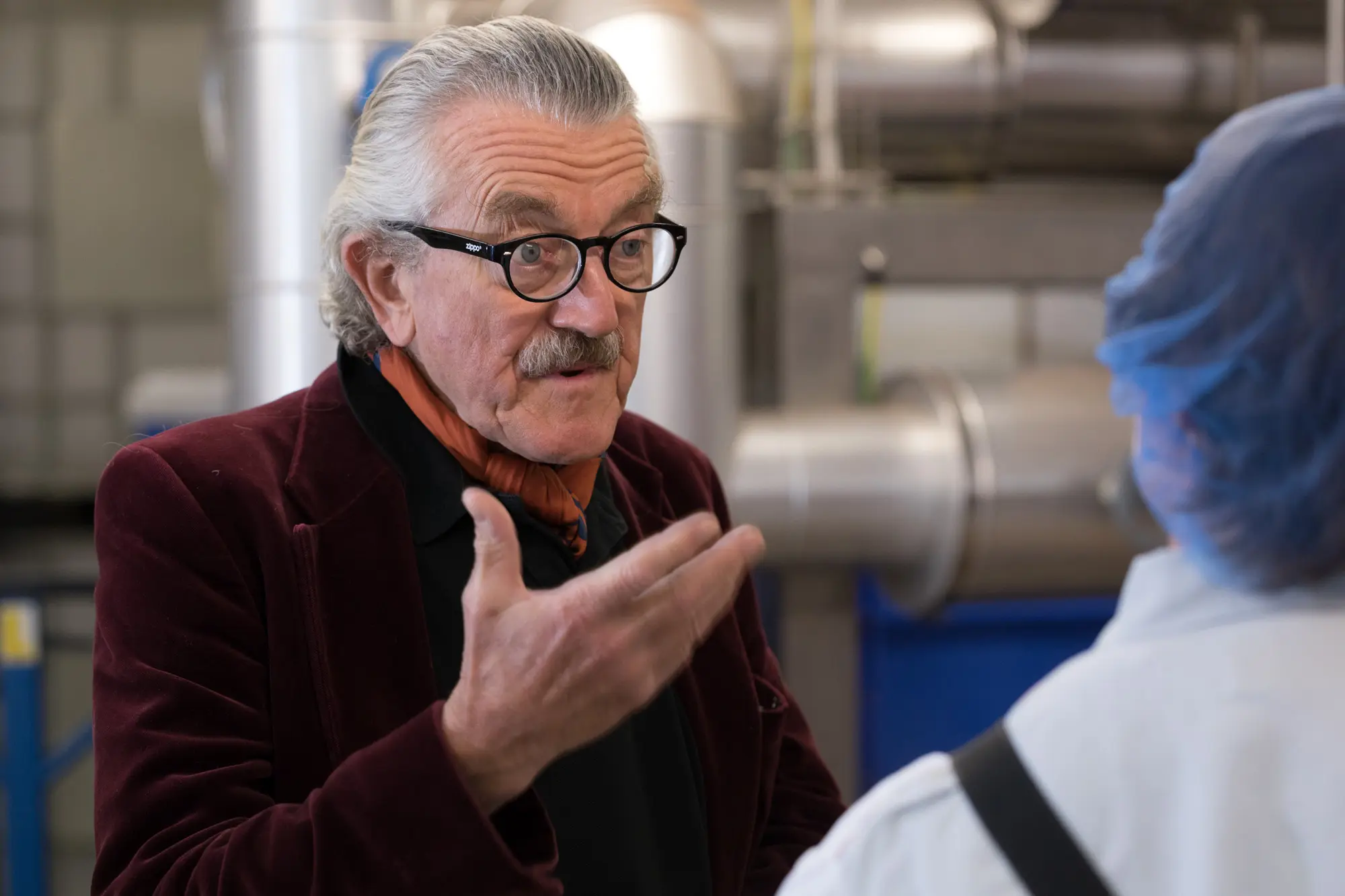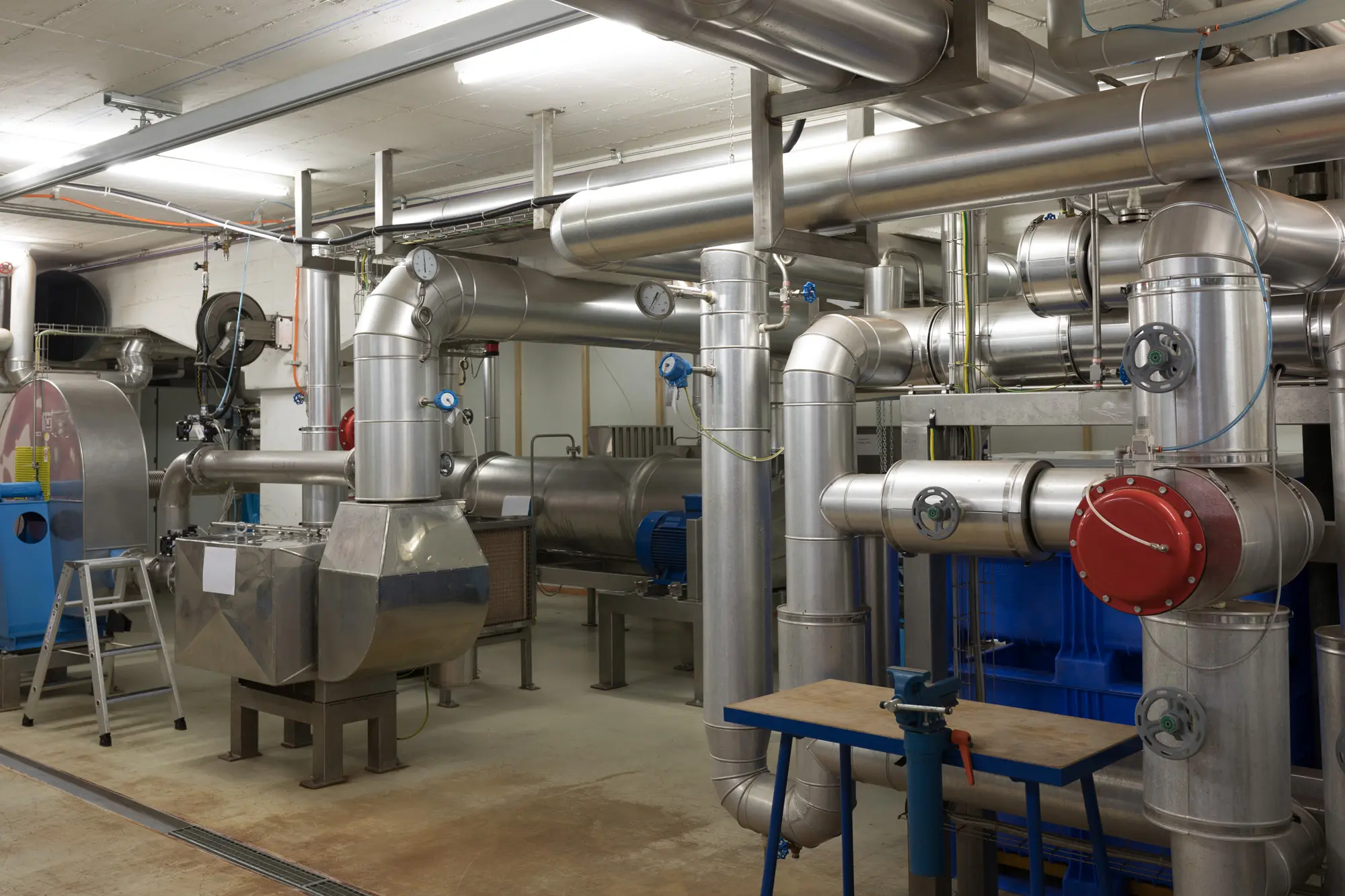Yello-founder Dieter Meier: a game changer in the chocolate industry
Multi-talented Dieter Meier plans to revolutionise the chocolate industry. Thanks to a completely new process, his chocolate contains less sugar and retains its original flavours, which differ depending on the cocoa’s country of origin.
Mr. Meier, you have taken up the challenge of revolutionising the chocolate industry with ZHAW-know how. How did this partnership come about?
Dieter Meier: Tilo Hühn from the Institute of Food and Beverage Innovation read an article in a magazine about how I cultivate coffee in the Dominican Republic. Only the ripe coffee berries are harvested, by hand, which is what creates the fully ripe flavour of the coffee. I also produce organic wines. So he assumed that I value natural flavours and introduced me to the process. Major chocolate producers have rejected it but that didn’t put me off. They understandably don’t want anything to endanger the success of their products. Some wanted to buy the rights to the process, simply to prevent it from reaching the market. But the ZHAW didn’t want the results of their research to be locked away in some safe.
What convinced you to work with the ZHAW?
I was interested from the beginning, because Professor Hühn has discovered a totally new technique. It creates chocolate with completely new qualities – it’s an absolute game changer in the industry. This kind of process could only have been developed by someone from outside the chocolate industry. Professor Hühn is a micro-biologist and an expert in drinks extraction technology. He has developed several new extraction techniques in the food industry.
What is so different about this technique?
In our process, all the flavour – 100 per cent – comes from the cocoa beans. We are able to break the beans down to their four natural components, which allows us to create completely new product combinations. The variety of flavours that can be extracted from the cocoa beans is fascinating. We are also able to extract the bittering agents, which makes the chocolate even tastier.
In conventional production, the cocoa beans are roasted at around 130 degrees, and at this temperature, the heat destroys some of the flavours. Then the beans are mixed in a conche, i.e. heated again, for anywhere between 12 to 72 hours. This produces a mass which appears very homogenous. However, it retains hardly any of its original flavours and is dominated by flavours created by the roasting process. So the chocolate industry works with flavouring additives like vanillin, which are added later.
Do you have a favourite chocolate?
I don’t. What I really enjoy is the opportunity to discover cocoa beans from all over the world in a new way. With our products, customers can taste the difference between cocoas from different regions. But like with wine, sometimes you’re interested in a wine from Ribera del Duero, and sometimes more in a wine from Pomerol.
There are hardly any experts or machines for this new process. How did you go about it?
We soon decided that we would build a pilot plant (in German), which allows us to perfect the process. The pilot plant employs mainly ZHAW graduates who did their bachelor or master degrees with Professor Hühn, or who have worked with him – or are still working with him – on research projects in this or similar fields. We are using machines from several different industries that have been adapted to our needs. The decanter, one of the core elements, is originally from the beverage industry. We have a drying machine that was used for pasta production. In our pilot plant, we want to test how the process could work on an industrial scale.
You want to build a factory for around 35 million Swiss francs. What exactly are you planning?
I would like to produce on an industrial scale as quickly as possible. It will take us around two years if we have to build everything from scratch. If we could move into an existing factory, like we have here at Chocolats Halba, who are moving their production to Pratteln, we could be ready in 11 to 12 months. We are in discussion with the property developers at the moment.
Have other chocolate producers shown any interest?
Once we presented the proof of concept, people realised that this isn’t some strange alchemical process, but highly scientific. Everyone in “Big Chocolate” is interested in us producing chocolate to fit certain customer profiles for them.
Chocolate producers often get negative press because of bad working conditions at the supply end. Will you grow your own cocoa?
I don’t know yet, but I’ve visited various cocoa plantations. I aim to source sustainable, very high- quality cocoa, and to make sure that it is harvested without child labour or other exploitative methods. At the moment I’m working on establishing a collaboration with a Mexican cooperative comprising 600 cocoa farmers. I want to do this in other parts of the world as well, and I will pay a fair price for the quality of the cocoa.
What’s the next step?
On 7 December, we will open a “Salon de Cacao” near the Hotel Storchen in Zurich, where chocolate lovers can learn exactly why and how our products differ from conventional chocolate. We are planning more stores, and we have business partners who are interested in including our chocolate in their range.
What will you be offering in the “Salon de Chocolat“?
We’re planning a kind of “chocolate library”, so that chocolate lovers can learn to recognise the cocoa’s country of origin by its flavours. We’ll have basic products like chocolates from various destinations and with different cocoa percentages, as well as two white chocolates that have their own distinctive flavours. We’ll also have vintage chocolates, because, just like wine, cocoa plantations differ from year to year, so the flavour of the beans they produce differs too.
Who do you expect to buy Dieter Meier’s Oro-de-Cacao chocolate?
Anyone who loves chocolate and has been waiting in vain for the industry to produce something closer to chocolate’s natural flavour. It won’t be difficult to show the public the advantages of our product: our chocolate allows guilt-free indulgence because it contains two thirds less sugar. Conventional types of chocolate, especially milk chocolate, are downright sugar bombs.
How will the collaboration between entrepreneur Dieter Meier and university professor Tilo Hühn continue?
I’m already looking forward to our next projects. For example, we’re very interested in the bittering agents, the polyphenols, which are extracted from the cocoa bean. They’re very valuable and they’re very much in demand in various industries, the cosmetic industry, for example. When they’re added to skin cream, the cream is absorbed more easily and so offers better protection. We’re testing that at the moment.
What is your secret to staying so fit and active?
I feel happiest when I can work with skilled people to create something new. It’s a pleasure to get something moving – I constantly find and re-invent myself. It’s like mountain climbing. It’s a passion for mountaineers because they feel completely different way when they climb. Nature cooperates, sometimes more, sometimes less; there are no perfect climbs. No company is completely problem free, either. But I think I have a talent when it comes to solving problems in cooperation with skilled people.

